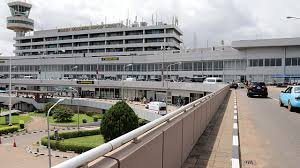The National Human Rights Commission (NHRC) and the Nigeria Police Force (NPF) have expressed concern over the lack of sign language experts in the country, saying it affects the rights and welfare of speech challenged persons.
The two agencies made the call at a sensitization program on Sexual Reproductive Health and Rights organised by Girls’ Power Initiative (GPI), the implementation partner of WeLead Project, in Ado, Nasarawa State, on Tuesday.
The Cross River State Coordinator of NHRC, Mr Remi Ajuga, said that sign language interpreters are essential for ensuring that speech challenged persons have access to justice, health and wellbeing, in line with the Sustainable Development Goals (SDGs) of the World Health Organization (WHO).
He said that courts, police departments, social organizations and all government offices should be encouraged to train sign language interpreters to help them attend to speech challenged persons.
“This call is in line with the SDGs of WHO, which calls for action to end inequality and ensure that all enjoy justice, health and wellbeing to the extent that no one is left behind,” he said.
“Training large numbers of sign language interpreters will allow for greater inclusiveness of most of those challenged by inability to talk.”
He added that the NHRC has received several complaints from speech challenged persons, but due to the dearth of sign language interpreters, they have hardly been attended to satisfactorily.
“They have also had such lack of satisfactory attention in other offices. So if we have such experts, they will readily interpret their complaints for better attention,” he said.
The head of Gender Desk at the Cross River State Police Command, SP Philo Modor, also supported the call for more sign language experts, saying it would help the police to handle cases involving speech challenged persons more effectively.
She recalled an instance where a speech impaired person was accused falsely and brought from Ikom in Central Cross River State for detention in Calabar.
“It was when we got the services of a trained sign language expert that we knew or understood the correct position that the challenged person was not guilty,” she said.
She said that training more Nigerians in sign language would also help to assuage the pains and feelings of speech challenged persons, who often face discrimination and stigma in the society.
The head of programmes at GPI, Ndodeye Bassey Obongha, said that the organisation is planning to organise sign language training sessions for representatives from 30 organizations in the state, early next year.
She said that the aim of the training is to equip the participants with the skills and knowledge to communicate with speech challenged persons, especially on issues of sexual and reproductive health and rights.
She said that the training is part of the WeLead Project, which is funded by the European Union and implemented by GPI and other partners, to promote gender equality and women empowerment in Nigeria.
She urged the participants to take advantage of the opportunity and learn sign language, as it would enhance their work and service delivery to speech challenged persons.
























